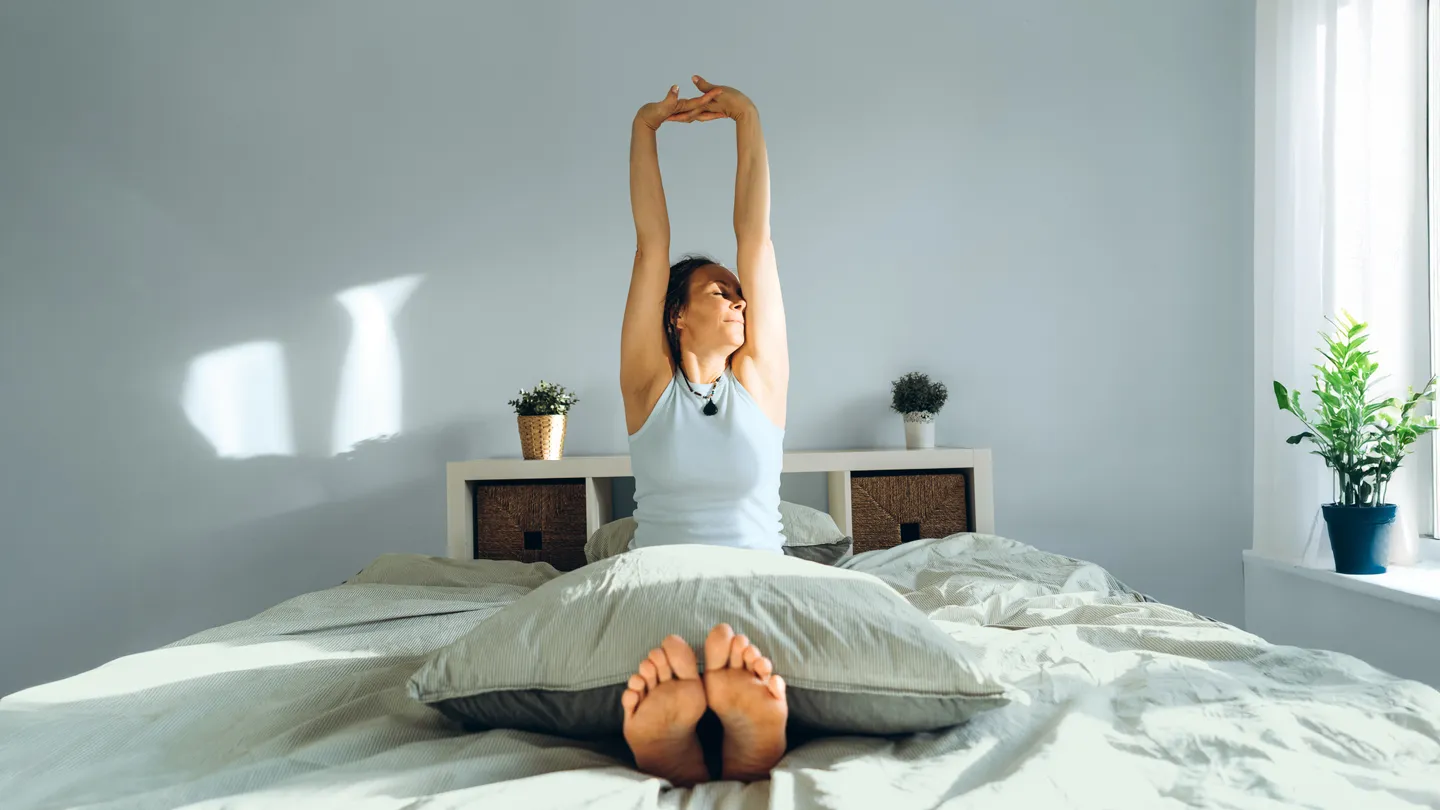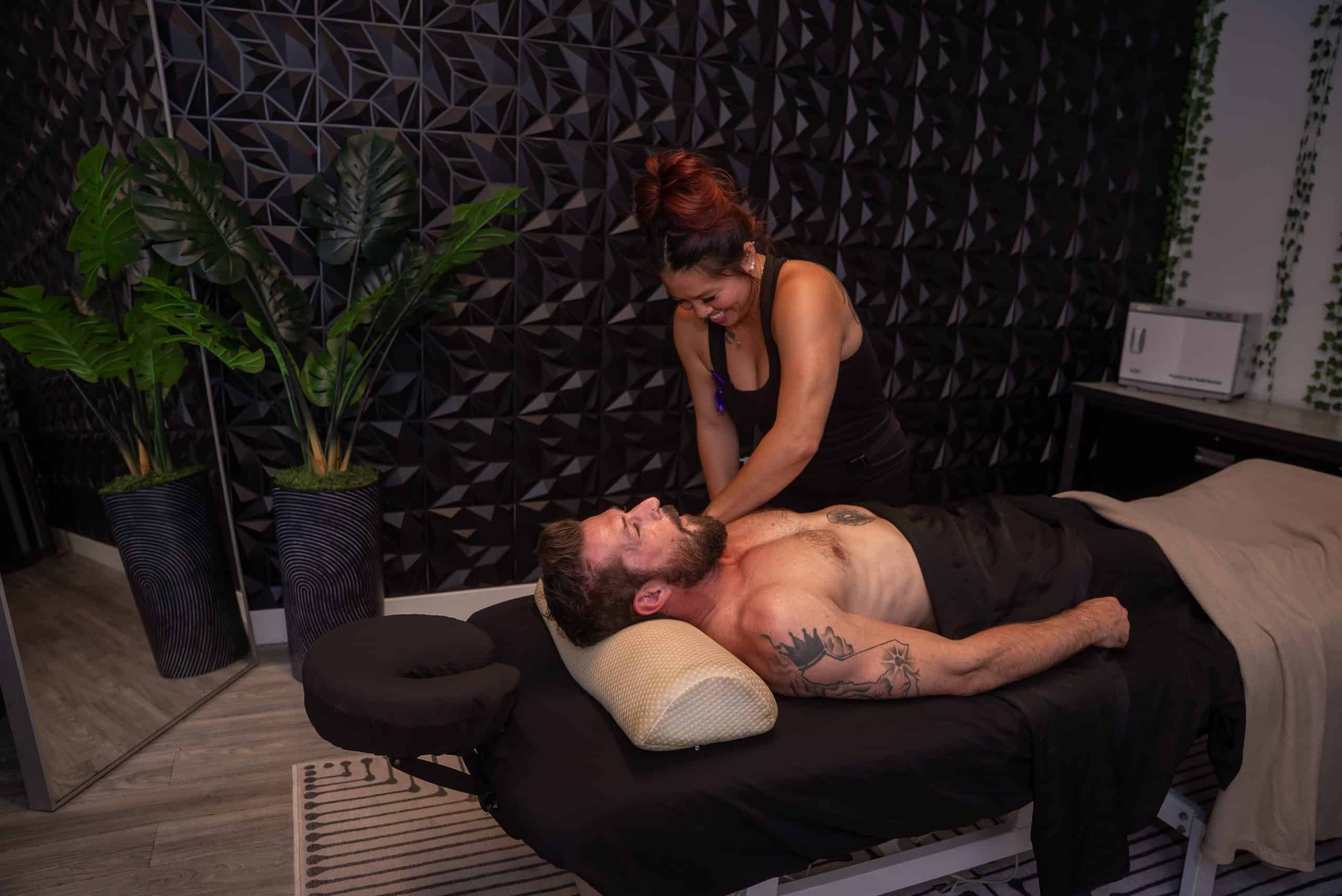“The findings provide compelling evidence that sleep is a critical yet often overlooked component of injury prevention,” says lead author Jan de Jonge, PhD, a work and sports psychologist at Eindhoven University of Technology in the Netherlands.
Runners tend to focus on mileage, gear, and nutrition, but forget that sleep is one of the body’s most powerful recovery tools, says Dr. de Jonge.
Your Sleep Profile May Predict Your Risk of Running Injury
The study drew on survey data from a mix of new and experienced recreational runners. The average participant had been a runner for 12 years. Investigators gathered data on how many hours participants slept and how often they experienced symptoms such as trouble falling asleep, frequent nighttime awakenings, or waking up feeling unrefreshed.
Using that information, the researchers identified four distinct sleep profiles:
- Steady Sleepers (48 Percent of Runners) These runners consistently slept seven hours or more. They were “slightly above average” in terms of sleep quality and tended to experience fewer sleep problems like nighttime waking or insomnia.
- Poor Sleepers (37 Percent of Runners) These people slept less than the other participants and regularly experienced sleep problems such as trouble falling asleep, waking frequently during the night, or not feeling rested after waking.
- Efficient Sleepers (8 Percent of Runners) These people slept about the same as the steady sleepers but reported the highest quality sleep and woke up feeling well-rested.
- Fragmented Sleepers (7 Percent of Runners) These runners had average sleep time and reported fairly good sleep quality, but they had more sleep disruptions than steady sleepers, specifically waking up during the night.
Researchers also gathered information about any injuries in the last year that were caused or developed during a run that made runners adjust their running or forced them to take unplanned days off.
Key findings of the study:
- Sixty percent of runners in the study had experienced a running injury in the past year.
- Poor sleepers had significantly higher injury odds; they were 1.78 times more likely to report an injury compared with the other groups.
- How much sleep a person got wasn’t the full story. A trifecta of short sleep, disrupted sleep, and low sleep quality appeared to matter most.
- In absolute terms, runners in the poor sleep group had a 68 percent chance of experiencing an injury within a year.
Why Does Poor Sleep Increase Running Injury Risk?
Although the findings show that running injuries and poor sleep are linked, the study doesn’t prove that poor sleep is actually the cause of running injury.
But this conclusion “absolutely” makes sense, says Josh Hayes, PT, director of sports medicine at Banner Physical Therapy in Gilbert, Arizona.
“Running is a high load activity and so it requires requisite strength and recovery to ensure that the body can tolerate this repetitive activity,” says Hayes, who wasn’t involved in the study.
“The general takeaway of these findings corresponds with the idea that sleep is incredibly important for rest and recovery, and poor sleep — whether behavioral or due to an underlying sleep disorder — might prevent adequate healing in the same way that poor sleep disturbs our immune system and cognitive processing,” says Neal Walia, MD, a sleep specialist at UCLA Health in California, who wasn’t involved with the study.
“One theory is that if someone develops early minor damage without proper healing and continues to exert themselves, this could exacerbate that issue into a full-blown injury,” Dr. Walla says. “It’s similar to the fact that if someone suffers a minor sprained ankle, returning to activity too early can make it much worse, as your body does not have time to heal.”
Sleep supports tissue repair via growth hormone, de Jonge points out, so poor sleep could hinder recovery, and therefore raise injury risk.
Poor sleep may also add to injury risk in other ways, de Jonge says, including:
- Boosting inflammation and weakening healing capacity, making runners prone to overuse injuries
- Increasing fatigue, which lowers endurance and pain threshold, leading to overexertion
- Increasing stress and mood issues, which could negatively impact focus and recovery adherence
- Slowing down reaction time and impairing coordination, which might increase missteps
Naps Can Help With Recovery
If you’re a runner or participating in other sports that require significant strength and cardiovascular effort, there is evidence to suggest that getting more sleep on a consistent basis could improve your performance, says de Jonge.
Napping is another option to get more sleep, or to compensate for too little sleep, he says.
“Daytime naps ranging from 20 to 90 minutes at maximum, between 1 and 4 p.m., can also be strategically used when needed. Short naps can help minimize the effects of sleep inertia [the temporary feeling of grogginess when you wake up from deep sleep], while longer naps may allow running athletes to complete a full sleep cycle, thereby promoting deeper recovery,” says de Jonge.
While a brief nap of 20 minutes may be most effective when the next task is short and involves frequent decision-making, a longer nap can protect against muscle damage, especially ahead of more demanding activities, he says.
Beyond enhancing total sleep time, naps have been shown to restore performance deficits to baseline levels following nights when you don’t get enough good sleep, says de Jonge.
Should You Skip a Run After a Bad Night of Sleep?
One night of bad sleep shouldn’t keep you from your planned run.
While any fatigue after a rough night may lower your motivation to exercise and make you feel like you’re having to work harder to achieve the same pace, there’s no reason to skip your run from an injury risk perspective, says de Jonge.
If Your Sleep Goes From Good to Bad, Talk With Your Doctor
People who are physically active in general tend to sleep better, but exercise alone isn’t a magic fix, says de Jonge.
“If someone runs consistently yet still struggles with poor sleep, it’s a sign that other aspects of sleep hygiene may need attention,” he says.
If you’ve traditionally been a good sleeper and suddenly find that your sleep quality has taken a nosedive, it could be a sign that training load, recovery, or behavioral factors have gotten out of balance, says Hayes.
Walia agrees that if you’re unable to sleep well consistently, you may need to dial back your training intensity.
“It also may be helpful to discuss with a health professional, especially if there are signs of a sleep related disorder such as untreated sleep apnea or insomnia,” he says.
How Can You Tell if You’re Getting Enough Sleep?
Unless you have a sleep disorder, your body is usually good at telling you how much sleep you need. Most people require between seven and nine hours per night, says Walia.
“A good way to evaluate this is by consistently going to bed early enough that you’re able to wake up naturally just before or near your alarm,” he says.










